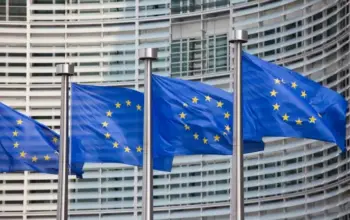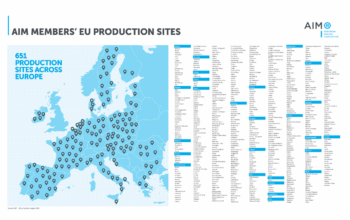Consumers

Helping brands engage with consumers and offer lasting value
Successful brands understand their consumers. They know how to talk to them, and how to meet their needs in a way that’s meaningful to them.
As cultural trends evolve, so too do consumers’ interests and needs. Increasingly, consumers want to align their spending choices with their beliefs about the world. Brands are learning that they must meet the challenge of offering products that help consumers meaningfully express their social identity. And they must do so in a fast-changing digital landscape – one that is changing where and how brands can best engage with the people who love their products.

Activities
Our activities centre on protecting, informing and empowering consumers – with the continued goal to build and maintain trust.
It is important that consumers are not deceived when purchasing branded goods, whether they’re buying in-store or online. We are working to ensure there are no fake products on the market – to keep consumers safe and build trust.
Counterfeiting and piracy now account for 5.8% of all EU imports. Counterfeiters are increasingly linked to organised crime, and sell all types of fake, sub-standard or non-compliant products. Since the 1980s, our members have worked with a wide array of other right holders through AIM’s Anti-Counterfeiting Committee to develop and enforce practical solutions. We promote the voice of right holders in EU institutions, in the European Observatory on Infringements of IP Rights, with law enforcement, in the WCO and in WIPO’s Advisory Committee on Enforcement. Our peers have honoured us with the Global Anti-Counterfeiting Group’s Award three times. AIM is also active in the global organisation that manages the Domain Name System, ICANN, to protect all Internet users from the abuse, including phishing, malware and online sales of infringing and illegal goods, predicated on the misuse of brand names in URLs, site addresses and messages.
It is crucial that consumers have accessible, transparent information about the products they buy. This information might include, for example, the social impact of a product, its nutritional content, its carbon footprint, or information on safety.
Getting the right information in consumers’ hands
Providing accurate information in a way that can be easily understood is an ongoing challenge. Too much, too complex or conflicting information can leave consumers no better informed and add unnecessary costs for producers. To address this, AIM worked with the European consumer organisation BEUC to develop “Common Principles of Consumer Information” based on reliability, usefulness, accessibility and proportionality. In our joint initiative “Smarter Logos, better informed consumers”, we tested these principles on logos, identifying challenges and recommendations for EU policy makers on how to enhance the usefulness of logos for consumers.
Tackling greenwashing
A growing number of transparency initiatives evaluate brand sustainability, often using inconsistent metrics and inaccurate data. AIM is working towards a globally harmonised data standard in Europe to improve data quality, consistency, and accuracy. Collaborating with the Consumer Goods Forum, EuroCommerce, and GS1, we aim to make this information easily accessible to consumers via smartphone.
While it is important that businesses meet environmental sustainability goals, policy-makers and academics have also identified the role of consumer behaviour in driving positive change. ‘Nudging’ can help consumers make small changes in their consumption habits – and brands are well placed to do just this, through their daily interactions with consumers. Brands’ ‘nudges’ make it easy and desirable for a consumer to change their behaviour in a way that is healthier for them and the planet. AIM launched ‘Nudges for Good’ in 2015, to support brands in creating effective nudges. We developed a toolkit and a factsheet, and launched the Nudging for Good Awards to recognise the best examples of impactful nudges among our members.
News and positions
View AllAIM Position Paper: the Consumer Agenda 2025-2030

Tackling Imbalance of Bargaining Power: EP aims to strengthen protection against unfair trading practices in the EU

IMCO Hearing on Rising Consumer Prices: Europe’s Consumer Goods Manufacturers urge an inclusive, fact-based discussion with all stakeholders



